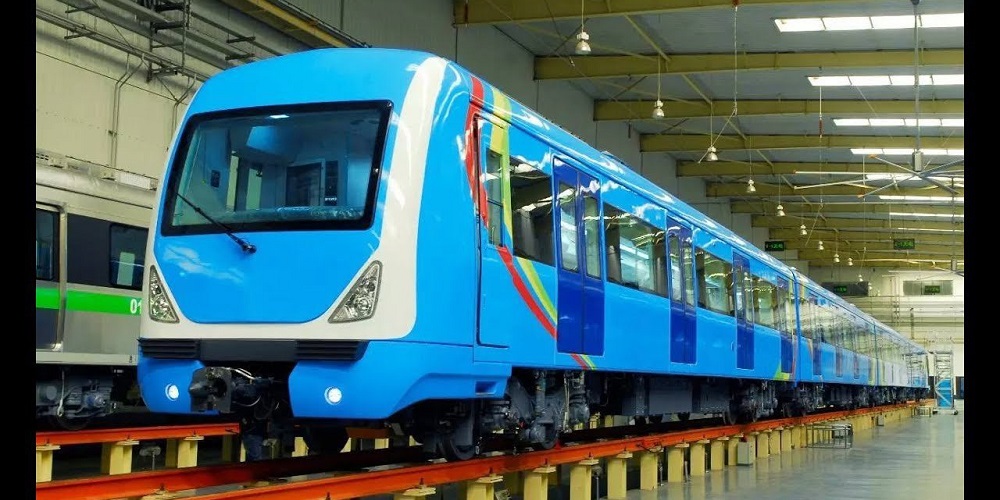Nigerians Devise Ways To Survive Hardship, Including Commuting Inside Car Boots!

Ibrahim Babagana, a commercial driver in Abuja, caught on video sharing his seat with a passenger, said it had become a norm and a way to cope with the rising cost of fuel.
He regularly carries passengers in his car boot and driver’s seat. He said passengers who do not have money usually beg to sit in the boot or beside him on the driver’s seat.
Once he realised he could make more money from overloading his vehicle, it became a daily practice for him.

Babagana, who plies the Nyanya–Gwarinpa–Zuba route at least six times daily, said he had to improvise when driving became more costly in 2023.
“My golf is manual, and it has the clutch, brake and accelerator. So, when I carry a passenger on the driver seat with me, he has to put his feet on the clutch, and most of these passengers are male, so. It is easier to navigate,” Babagana revealed.
When asked if he had faced any penalties from authorities or resistance from fellow commuters, he explained that Mondays posed some risk, as road safety officers were strategically stationed, but he had never been caught.
He said, “Driving from Nyanya to AYA bridge, road safety is always on guard every Monday between 7 to 10 am, on the bridge, so I do not drive during that period.”

”I have never been stopped by any force authorities, passengers have never complained, some of them even joke about it with me, however, the only time I pay money is when I tip off touts (agbero’s) at the Nyanya pack,” Babagana noted.
As economic hardship continues to grip Nigerians, many residents, desperate to survive, have begun adopting risky measures—often ignoring the serious implications of their choices.
THE WHISTLER observed that commuters now struggle for space inside the boots of commercial vehicles, especially Volkswagen Golfs, treating the compartments as regular passenger seats.

This alarming trend is not restricted to the car boots alone.
In some cases, passengers are seen sharing the driver’s seat as they cram beside the driver while the vehicle is in motion.
In videos captured by THE WHISTLER in the Federal Capital Territory (FCT), commuters were seen negotiating with drivers to sit inside car boots at discounted fares.
Others, in their desperate attempt to commute, fought for space in the driver’s seat, putting themselves and others in danger.
This troubling development is one of the things on the mind of the Corps Marshal of the Federal Road Safety Corps (FRSC), Shehu Mohammed, when he said recently that drivers’ disregard for traffic rules and safety regulations remains a leading cause of fatal accidents across Nigeria.
According to Mohammed, incidents such as drivers violating safety rules accounted for the 7,675 crashes and 24,525 injuries or fatalities recorded in 2024 alone.
Despite these disturbing statistics, THE WHISTLER discovered that passengers still beg to sit in car boots, a trend notably prevalent in the North Central, North West, and North East regions.
Idris Aliyu, a commercial driver, was also seen collecting ₦1,000 from a passenger seated in the boot, heading to Zuba from Nyanya. He said he needed to boost his income.

“I am a family man with responsibilities, so I need to devise means to increase my daily earnings.
“I do not carry passengers in the driver’s seat; however, the boot can convey passengers rather than driving it empty.
“Nyanya to Zuba is between N2,000 and N2,500, but I carry them in the boot for N1,000,” he revealed.
Commuters Speak
THE WHISTLER found that the current fare of N2,500 represents a 212.5 per cent increase from the N800 paid by commuters in 2023.
Though unsafe and uncomfortable, commuters told THE WHISTLER that they are doing it for survival.
One boot passenger who identified himself as a vulcaniser said he had to find a cost-effective means to move around.
“This is not convenient; surviving Nigeria requires risk, which is what I am taking daily,” he said.
“At least I have saved N1,500 from sitting in the passenger’s seat; this money will transport me back to Nyanya.”

Another passenger, Olu Kumuyi, although not seated in the boot during our interview, recalled his own experience.
Kumuyi said he initially frowned upon the boot seating system but was forced to take a spot in the boot to attend a job interview.
“I remember the day. I had an interview from Kubwa to Lungi Barracks; there was a downpour, cars were not available, and the ones seen were fully loaded,” he said.
“I had to beg the driver so I could sit in the boot; the fee was cheaper, but the experience was terrible.”
When asked if he got the job, Kumuyi responded, “No, I didn’t secure the job; however, that experience is stuck with me, and whenever I see people struggling to sit in the boot, I feel terrible, because I know how inconvenient that position can be.”
For Ezeh Adaora, a distressed passenger, the situation is more than uncomfortable; it is a security threat.
Adaora said, “I know times are hard, but somebody sitting in a boot behind me in public transport is life-threatening to me.”
FRSC Reacts, Calls for Judicial Backing
The FRSC Corps Public Education Officer (CPEO), Olusegun Ogungbemide, has expressed strong disapproval over what he described as “appalling and ridiculous transportation behaviour” by Nigerian road users.
Speaking with THE WHISTLER, Ogungbemide said the commission is fully aware of the recurring infractions and is taking steps to address them.
He said many of the offenders are not ignorant but deliberately flout traffic laws to test enforcement boundaries.

“We are very much aware, and this is common with the issues of traffic lights; if you visit our various offices, you will see them being addressed. The issue of traffic offences and the transportation sector is just like a church.
“You know every Sunday the pastor calls out for first-timers; it is an indicator that fresh sinners are waiting to be converted. The same thing goes for the issues of offences on our roads.
“The more we arrest, the more we see newcomers, and the more we also have the reprobate ones who will want to test the waters. We have never overlooked it; we have reasons to arrest them; their records are there, and we call it overloading,” he said.
He stated that despite multiple arrests, some offenders feel emboldened by their ability to evade apprehension, while others openly vow to continue violating traffic laws.
“Some drivers will tell you that they won’t stop, and on the days they are not arrested, they will make up the money lost. These are reprobate offenders.
“For reprobate offenders, we have their records, based on a series of arrests, and we can also decide not to give fines but rather proceed to court,” he added.
Ogungbemide revealed that the Corps tracks repeat offenders using a point mark system.
“When you are booked, the points attached to your offence will also count on your driver’s licence, so the moment it gets to a particular point, either you are suspended or the driver’s licence is withdrawn,” he explained.
In response to a question about further strategies to address the increasing trend of infractions, Ogungbemide stressed the role of the judiciary in backing enforcement efforts.
He emphasised that although the Corps has intensified public education and arrests, legal limitations prevent more stringent measures, particularly against passengers in overloaded vehicles.
“I can’t deny this happening; we have gone to their motor parks to enlighten drivers, and for those that are still operating on the road will surely face the music.
“There is no other measure apart from public enlightenment and arrest. The only thing that could have helped, which the law has not permitted, is to discourage the passengers from getting to sit in an overloaded vehicle.
“But we can’t arrest passengers, because the law has not permitted us to do that; if not, that would have been a better way of discouraging it.
“Because if you know you are part of those perpetrating this atrocity and you are arrested for getting involved, maybe that will also send a signal, but the law again does not permit us,” he noted
Ogungbemide stressed that continuous enlightenment, continuous public enforcement and accessing the means of the judiciary to give it a higher bite would address the issue.
Nigerians Devise Ways To Survive Hardship, Including Commuting Inside Car Boots! is first published on The Whistler Newspaper



